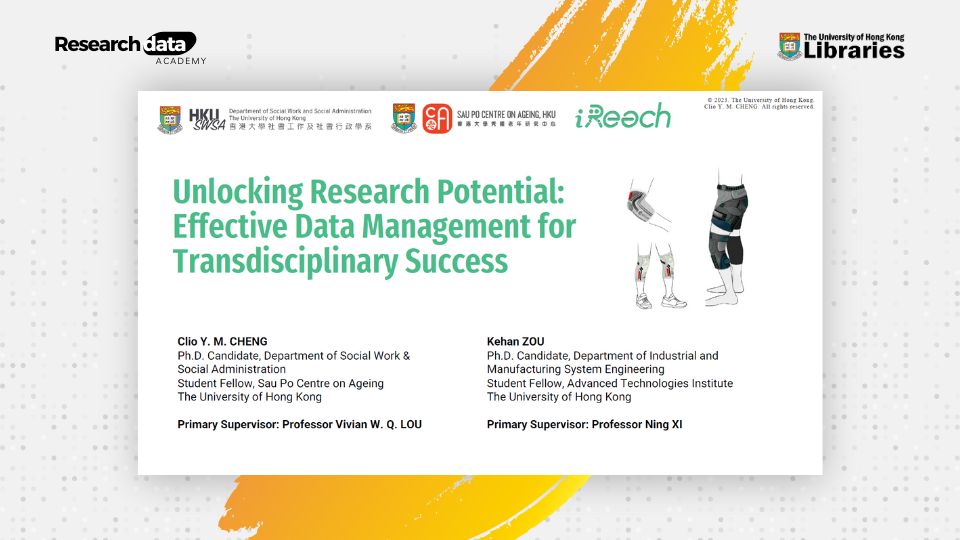
HKU Contribution to Sustainable Development: Committed, Comprehensive, and Crucial
— by Chloe Ng
The 2030 Agenda for Sustainable Development (United Nations, 2015) provides a shared roadmap for achieving sustainable development by year 2030. Central to this agenda are the 17 Sustainable Development Goals (SDGs), which emphasize the need for global partnership to address pressing challenges and create a better world for present and future generations.
The University of Hong Kong (HKU) is committed to play our part for sustainability through research and scholarly outputs. This blog post examines the contribution of HKU to sustainable development by analysing the research impact of our scholars with SciVal data on SDGs.
HKU Publications Contributing to Sustainable Development
Since 2018, Elsevier has generated SDG search queries on the 16 SDGs1 to help researchers and institutions track progress toward the SDG targets. For 2023, a new set of mapping was introduced, making minor modifications to the query and machine learning algorithm of the 2022 SDG mappings2 (Elsevier). This blog post analyses the publications of HKU scholars from 2018 to 2023 based on the Elsevier 2023 SDG Mapping3 (Bedard-Vallee at al., 2023).
A total of 18,037 publications from HKU scholars have been identified with at least one of the SDG search queries. The number of HKU Publications from each SDG search query is illustrated in the figure below. HKU scholars contribute the most outputs to SDG 3 (Good Health and Well-being), SDG 11 (Sustainable Cities and Communities) and SDG 7 (Affordable and Clean Energy).
Figure 1 – Number of HKU Publications by SDG
Citation Impact of HKU Publications
Taking into account the differences in research behaviour across disciplines, Field-Weighted Citation Impact (FWCI) measures the ratio of the citations actually received by a publication and the citations expected based on the average of the subject field4 (Elsevier). A FWCI of exactly 1 means that the output performs just as expected for the global average.
The scholarly outputs from HKU have FWCI higher than 1 under all SDG search queries, indicating that we receive more citations than the Field-Citation Average. HKU publications on SDG 2 (Zero Hunger) get the highest FWCI, equivalent to 4 times of the citations expected based on the global average for similar publications. The citation impact on HKU Publications on each SDG is demonstrated in the figure below. It showcases the strong influence of HKU research contributions across all SDGs.
Figure 2 – Field-Weighted Citation Impact of HKU Publications
Topic Clusters on SDGs
A Topic Cluster represents a higher-level area of research by aggregating similar research interests though direct citation linking (Elsevier). Each new publication is allocated to one of the 1,500 Topic Clusters. These Topic Clusters can be used to get a broad understanding of the research by an institution.
Given the global impact of the pandemic in our focused publication year, it is unsurprising that the most popular research topics on SDGs revolve around COVID-19 and human influenza. Other notable areas of research interest include photocatalysis, traffic control, and obesity. The interactive treemap below allows you to view the Topic Clusters of HKU publications on each SDG.
Figure 3 – Topic Clusters of HKU Publications by SDG5
Viewing SDG Publications on HKU Scopus Profile Page
The Scopus Organizational Profile page now includes an SDG tab, showing the number of documents published by the organization that have contributed to specific SDGs (Elsevier, 2024). You can get the latest numbers and scholarly outputs on SDGs from the HKU Scopus Profile page (Log-in required, eligible library users only). The “Sustainable Development Goals 2023” tab is available in the new version of the Organizational profile page.

Figure 4 – HKU Scopus Profile Page
The data on the SDGs shows that the research output of HKU encompasses a wide range of sustainability topics that contribute to the United Nations’ agenda with significant research impact. Our scholars continuously dedicate to the SDGs through diverse research initiatives, demonstrating our commitment to sustainability.
References:
Bedard-Vallee, A., James, C., & Roberge, G. (2023). Elsevier 2023 Sustainable Development Goals (SDGs) Mapping. Elsevier Data Repository. https://doi.org/10.17632/y2zyy9vwzy.1
Elsevier. (n.d.). Sustainable development goals (SDG) faqs. SciVal Support Center. https://service.elsevier.com/app/answers/detail/a_id/29398/supporthub/scival/kw/sustainable/
Elsevier. (n.d.). What are topic clusters?. SciVal Support Center. https://service.elsevier.com/app/answers/detail/a_id/35052/supporthub/scival/kw/topic+cluster/
Elsevier. (n.d.-c). What is field-weighted citation impact (FWCI)?. Scopus: Access and use Support Center. https://service.elsevier.com/app/answers/detail/a_id/14894/supporthub/scopus/~/what-is-field-weighted-citation-impact-%28fwci%29%3F/
Elsevier. (2024). Sustainable development goals (SDG) now available on the Scopus Organizational Profile. Elsevier Scopus Blog. https://blog.scopus.com/posts/sustainable-development-goals-sdg-now-available-on-the-scopus-organizational-profile
United Nations. (2015). Transforming our world: the 2030 Agenda for Sustainable Development. United Nations. https://sdgs.un.org/2030agenda
Notes:
- Elsevier does not include SDG 17 (Partnerships for the Goals) because it is difficult to quantify and be defined with a search query.
- Please refer to the two blog posts from 2022 and 2023 on the review HKU research on SDGs with previous Elsevier SDG Mappings:
- The data in this blog post were extracted from SciVal on 5 March 2024.
- The Field-Citation Average is the expected number of citations for a specific type of Scholarly Output, from a specific subject discipline (or disciplines) for a specific year. See an example of the Field-Weighted Citation Impact calculation here.
- The treemap includes topic clusters with at least 100 scholarly outputs in all SDGs only.


